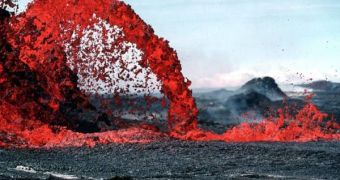In their search for life on other planets outside the solar system, astronomers may as well take into account another limiting factor. Even if they find something on an exoplanet that is within its star's habitable zone, they have to ensure that the planet is not tidally locked and that the right amount of volcanic activity exists on it. Too little or too much tectonic activity or lava eruptions, and the planet becomes uninhabitable. These elements can even outweigh the importance that vast supplies of liquid water have. In other words, even if they manage to find liquid water on an exoplanet, it may be that the other conditions on the celestial body make it impossible for life to exist.
Researchers led by University of Washington in Seattle Planetary Scientist Rory Barnes have recently been advocating for the necessity of having astronomers take volcanic activity more seriously into their calculations of probabilities that life exists on certain planets. They give the examples of the Earth and Mars. Our planet was fortunate enough to have very active volcanic eruptions when it was first created. At the time, the volcanoes spewed countless tons of carbon dioxide and water vapors into the atmosphere, eventually triggering a chain of events that led to the emergence of photosynthesis.
On Mars, however, the situation was a bit different. Because of a low-activity core, there was insufficient volcanic activity on the planet to allow for it to eventually support a life-prone atmosphere. As a result, water became trapped in ice sheets that deposited at the planet's poles, and any traces of life that may have existed on the Red Planet are now either gone for good, or buried under miles of ice.
To further prove a point, Barnes gives the example of the exoplanet GJ 581 d, found in 2007 more than 20 light-years away. According to early investigations of its orbit, the planet was inferred to exist in its star's habitable zone, which means that it is most likely able to carry water. But, after careful analyses of its orbit, the astronomers discovered that other tidal forces were at work as well, which would most likely prevent life from appearing on the exoplanet. There is little volcanic activity on it, because there are not enough tidal forces pulling on the planet, from its neighbors or its star.
“The litmus test for planetary habitability has until now been adequate sunlight and amenable surface climate,” Pennsylvania State University Astronomer Darren William says. But now, it would appear that other elements would have to be considered as well. Scientists begin to agree that, without carbon dioxide, there are little chances of life being able to form on exoplanets, even if they are in their stars' habitable zones, ScienceNow informs.

 14 DAY TRIAL //
14 DAY TRIAL //